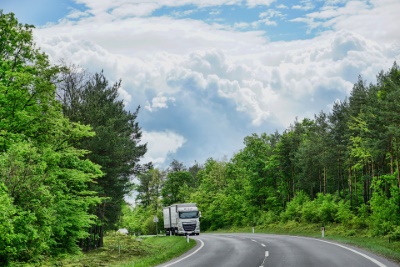Views sought on EV charging and hydrogen refuelling strategy
 The government is seeking evidence from fleet operators and other interested parties to inform and support the development of its zero-emission HGV and coach infrastructure strategy. which is due for publication in 2024.
The government is seeking evidence from fleet operators and other interested parties to inform and support the development of its zero-emission HGV and coach infrastructure strategy. which is due for publication in 2024.
The strategy will ensure the delivery of the infrastructure required to meet the 2035 and 2040 phaseout dates for non-zero emission HGVs, the Department for Transport (DfT) says.
The call for evidence is now open, and closes on 14 December. It seeks to gather information on the current and future supply, uptake and use of zero-emission HGVs and coaches, and their refuelling and recharging requirements.
It seeks information from fleet operators, trade associations and other interested parties, asking fleets which zero-emission technologies they have considered and their assessments thereof – as well as garnering views on infrastructure needs, who should provide it, likely barriers that may be encountered in installing and accessing it, and fleet behavioural changes that may be required to accommodate the transition to zero-emission.
“The transition to zero emission commercial vehicles is well underway in the smaller weight categories,” said DfT in its accompanying document.
“Here, battery electric is crossing over from cars and light vans to becoming the early dominant technology for lighter HGVs operating in the urban distribution market and for operations which have a duty cycle that brings them back to base every day.
“Many manufacturers are also putting this technology to use in the largest trucks. However, batteries may not be the answer for all cases, especially in the larger weight classes.
“Manufacturers are bringing hydrogen fuel cell HGVs to the market, which could offer a longer range between refuelling than most battery electric HGVs today and an experience most similar to that of diesel, but with a greater range of models available and battery technology continuing to improve, adoption could grow rapidly.”
It added: “The preferred technology for specific cases will vary on factors such as vehicle operating weight, drive cycle diversity and maximum journey lengths. Although there is still some way to go before battery or hydrogen fuel cell HGVs can deliver the practicality of a diesel HGV in every case, the availability of zero exhaust emission HGVs is growing with a variety of vehicles up to 44 tonnes available today.”
DfT is also gauging opinion on the role that “transitional technologies”, including low carbon fuels, plug-in hybrid vehicles and hydrogen combustion, can play, while re-emphasising that from 2040, “all new HGVs must be fully zero-emission at the exhaust”.
However, it said: “During the transition to zero emission, low carbon fuels have a significant role to play to help reduce carbon emissions from existing vehicles. Low carbon fuels currently provide a third of greenhouse gas savings in the domestic transport sector.
“In line with Climate Change Committee advice, we believe that in the long term, low carbon fuel use should be focused in sectors that are harder to decarbonise, such as aviation and shipping.
“In the short to medium term, as zero emission technologies are gaining momentum, transitional technologies, such as low carbon fuels, will continue to generate carbon savings in the existing road fleet.
“We will soon be publishing a low carbon fuel strategy setting out a vision for the deployment of low carbon fuels across transport modes up to 2050. Use of these transitional technologies will also have implications for infrastructure.
“Potential synergies with both existing and new-built refuelling and recharging infrastructure may need to be considered.
“Currently, low carbon fuels, mainly biofuels blended into standard blends, typically make use of existing fuels infrastructure. However, new type of fuels, including higher biocontent fuels, may also require dedicated infrastructure.”
Kate Jennings, director of policy at Logistics UK, said: “We very much welcome the call for evidence to inform and support the development of the zero emission HGV and coach infrastructure strategy which is due to be published in 2024.
“We have continued to strongly advocate to government that this infrastructure strategy receives adequate input from industry to make sure, when it is eventually rolled out, it is in the right places to serve the sector in the most efficient manner possible.”
Prior to the announcement of the call for evidence, the Road Haulage Association called on government to introduce an ‘emissions-linked rebate’ to encourage hauliers and coach operators to switch to low-carbon fuels.
“A move to make low-carbon fuels such as HVO more cost effective could help the industry accelerate its decarbonisation journey,” said the association.
“Whilst zero-emission technologies are developed, low-carbon fuels can help operators reduce CO2 emissions by up to 90 percent.”
Those wishing to respond to the government call for evidence on zero-emission infrastructure for heavy vehicles can do so online, and find further information, here.










